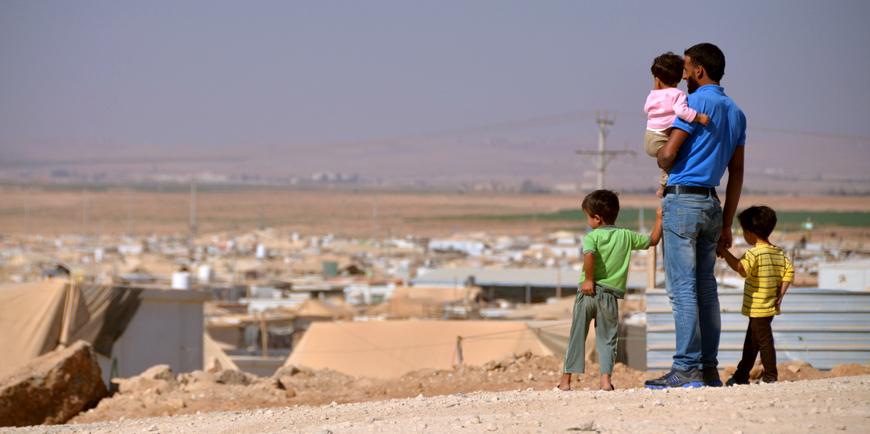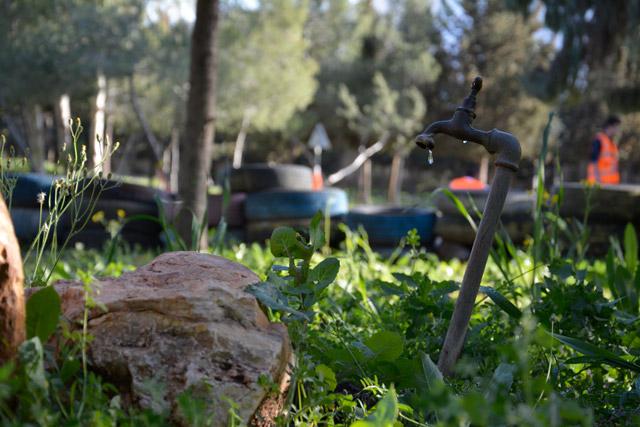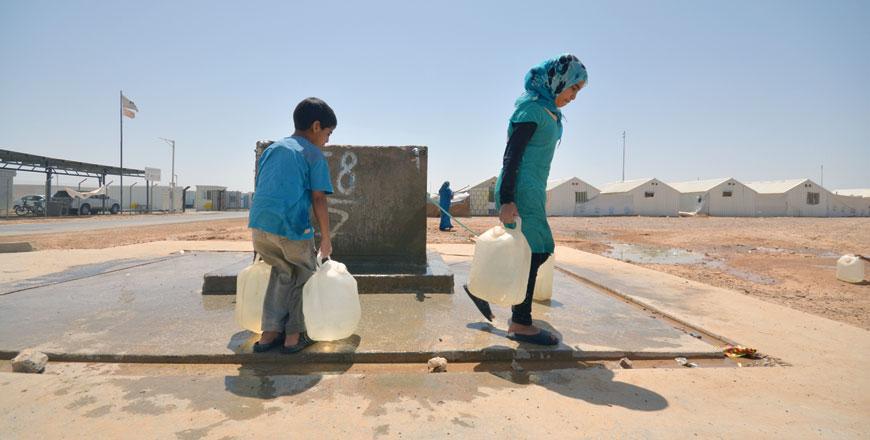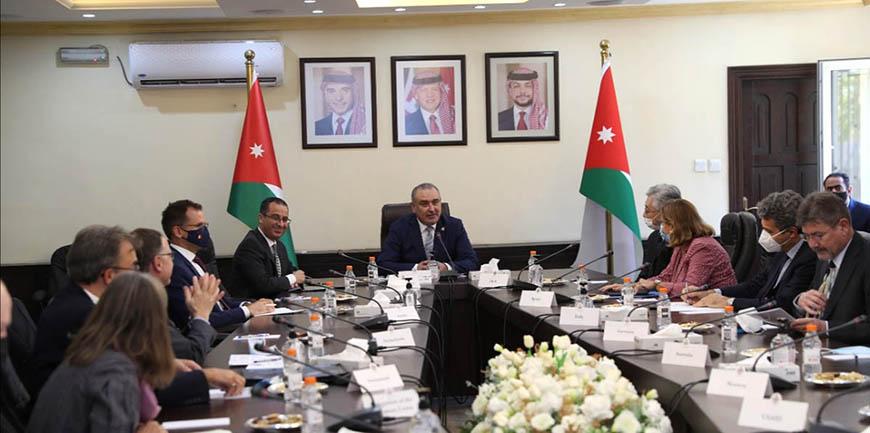You are here
Europe’s refugee dilemma brings Jordan into spotlight
By Omar Obeidat , Dana Al Emam - Sep 22,2015 - Last updated at Sep 22,2015

Syrian refugees are seen in Zaatari camp, northeast Jordan, on Tuesday (Photo by Muath Freij)
AMMAN — Representatives of donor countries and international aid agencies visiting Jordan must “closely” examine the impact of Syrian refugees on the already fragile host communities, analysts and officials said.
Over the past few days, the Kingdom received UN Undersecretary General for Humanitarian Affairs and Emergency Relief Coordinator Stephen O’Brien, European Council President Donald Tusk and German Economy Minister Sigmar Gabriel.
The visits aimed to have a first-hand look at the conditions of Syrian refugees in the Kingdom, mainly in refugee camps, and the need for increasing international support to Jordan as a safe host country for refugees, in a bid to minimise illegal crossings of migrants into Europe.
Since the beginning of the Syrian crisis five years ago Jordan has been repeatedly calling on the international community to extend adequate support for refugee host countries, highlighting the social and economic impact of the burden, said Jawad Anani, an economist, former Royal Court chief and a several-time minister.
“It was not until the crisis started reaching Europe that they realised what we were saying,” he told The Jordan Times Tuesday over the phone, citing a change in donors’ priorities in order to “keep refugees happy in their host countries”.
The unprecedented wave of refugees to Europe has brought to the forefront the need to help Jordan, which hosts over 1.4 million Syrians, Minister of Planning and International Cooperation Imad Fakhoury told The Jordan Times Monday following the signing of $429.7 million in grants with the US.
“What is happening in Europe right now, Jordan has warned of since the start of the refugee crisis some four years ago,” the minister added, calling on donor countries to offer more economic assistance to host countries to enable them cope with the large numbers of refugees.
“Assist a country like Jordan to reduce the spillovers from the region to your regions,” Fakhoury said, referring to European countries now struggling to deal with a new wave of immigration.
US Ambassador to Jordan Alice G. Wells also commented on the question by The Jordan Times whether the recent influx of refugees to Europe made them aware of the burdens Jordan has been shouldering for nearly four years.
It is critical to support Jordan and neighbouring countries, she said, adding the international community should be doing more.
In a recent meeting with dignitaries and community leaders from Irbid Governorate, His Majesty King Abdullah highlighted the need for further international support to the Kingdom in addressing the refugee issue.
Although Jordan is hosting a big number of refugees on behalf of the international community, around 1.4 million Syrian refugees constituting around 20 per cent of the country’s population, international contributions remain humble.
Last year’s international assistance covered only 24 per cent of the Kingdom’s needs to deal with the refugees, a figure that increased this year to address 35 per cent of the needs.
Jordan can test the seriousness of the international community’s commitment through clear governmental programmes designed mainly to address shortcomings in the infrastructure system in cities and villages, where donors can directly spend their money, said Khaled Wazani, a prominent economist.
He noted that donors allocate their assistance to Jordan only based on the figures and conditions of refugees in refugee camps, noting that the majority of Syrian refugees live in host communities that already face major developmental challenges that have compromised the quality of education, health and infrastructure.
“Jordanian host communities will be more willing to understand the refugees’ crisis and develop highly positive attitudes towards refugees if they witness on the ground development projects that are likely to elevate their living conditions too,” he told The Jordan Times.
He noted that European taxpayers will be willing to pay more to assist their governments in supporting refugees in host communities, some of whom may not be welcoming of a population with a different background in their communities, while others take it as philanthropy.
Commenting on the issue, Al Rai daily’s analyst and columnist Issam Qadamani highlighted the role of Western media outlets in magnifying humanitarian acts toward immigrants reaching Europe.
Meanwhile, international media outlets in Jordan mostly cover what they perceive as hard conditions in refugee camps, although the majority of refugees (up to 85 per cent) live in host communities that do not receive adequate support.
The number of Syrian immigrants arriving in Europe recently cannot be compared to the number of Syrian refugees that have arrived in Jordan since the beginning of the crisis five years ago, he said.
“The visits of representatives of international aid agencies are usually limited to refugee camps, where they merely express sympathy,” he said, calling on them to adopt a more realistic view on the situation in host communities.
Related Articles
AMMAN — Water Minister Hazem Nasser on Wednesday called for drafting a funding plan to address the needs of host communities and Syrian refu
AMMAN — The Ministry of Planning and International Cooperation has published a booklet on the new Jordan Response Plan (JRP) to the Syrian r
AMMAN — Minister of Planning and International Cooperation Nasser Shraideh on Saturday acquainted ambassadors and representatives of donor c




















